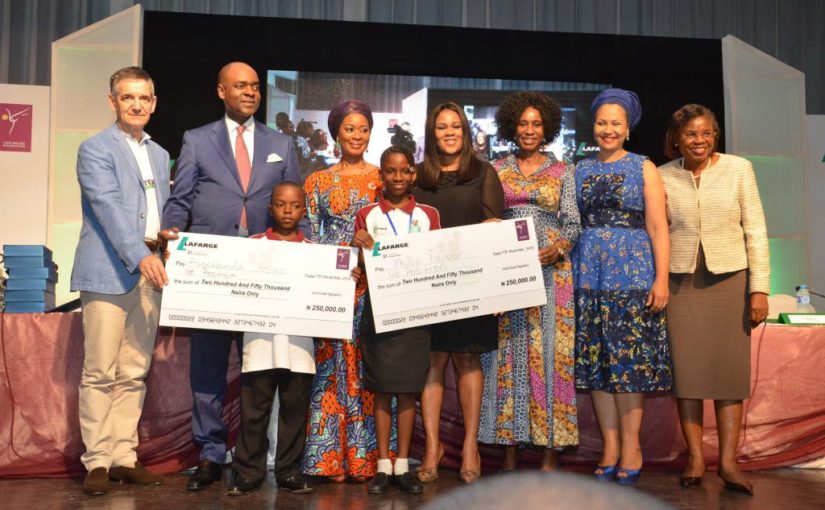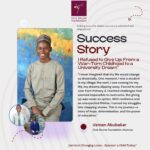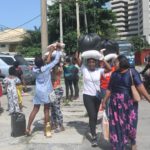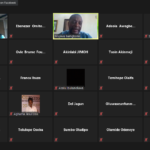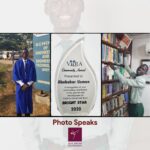Lagos, Nigeria; 5th October 2016
Lafarge Africa Plc has commenced the regional stage of the 3rd edition of Lafarge Africa National Literacy Competition organized in collaboration with Ovie Brume Foundation, a non-governmental organization. The annual competition is one of the national social investment programmes developed by the construction solutions giant to take corporate social responsibility beyond her host communities to a wider Nigerian audience.
Following painstaking selection of participating public schools from the different States across Nigeria with the involvement of the respective States Universal Basic Education Boards (SUBEB), the regional stage of the competition will hold in the six geo-political zones of the country between October 12 and October 28, 2016. To round off this year’s edition, the grand finale for the winners at the regions is slated for November 15, 2016 in Lagos.
Commenting on the success of the competition so far, the Group MD/CEO, Lafarge Africa Plc, Michel Puchercos stated that the organization continues to provide support and interventions in education as part of its core areas of social investments in furtherance of its commitment to building a greater Nigeria. According to him, Lafarge Africa’s focus on the development and promotion of literacy skills among Nigerian children, especially those in the public schools is based on the recognition that literacy – the ability to read, write and comprehend – is tied to everything we do. “When our children have the right literacy skills, they develop a strong sense of individual well-being and citizenship and become better contributors to economic development”.
Continuing, Puchercos said the company’s contributions to literacy in Nigeria are geared towards achieving its goal of creating value and delivering the best returns for all stakeholders in a consistent and sustainable manner. “For us at Lafarge Africa Plc, we are excited about this initiative of contributing to the breeding of a generation of literate Nigerians as studies have shown that children who have developed strong writing, reading and comprehension skills perform better in their formal or informal educational pursuits, they become lifelong learners and sought-after employees’, The commitment to pull the younger generation out of poverty and underemployment should start from now, he stated.
In her remarks the Chairperson of Ovie Brume Foundation, Ms. Evelyn Oputu expressed delight with the positive impact being recorded by the national initiative and applauded Lafarge Africa’s dedication and formidable partnership that has ensured its smooth progress.
The valuable learning outcome of the project has resulted in the children gaining competency over vocabulary and this allows the children to excel at reading and writing. The preparation for the competition is a comprehensive learning process that allows children to learn the definition, pronunciation, and roots of the word. The ability to understand more words has allowed the children to become more literate and enjoy reading extensive range of materials. The last three years has brought out the best in the children in terms of confidence building, competitive spirit, greater knowledge and cognitive skills including the ability to handle pressure. The learning process enhances the children’s memory and allows the children to develop better learning skills, which can prove to be highly beneficial in the future.
“I am assured that this close cooperation to promote literacy by the Ovie Brume Foundation and Lafarge Africa Plc will continuously open more opportunities to several indigent students across Nigeria” she declared.
A derivative of the Lafarge book on wheels (BOW) – a volunteering mobile reading session with pupils in public primary schools in the company’s host communities – Lafarge Africa National Literacy Competition was launched in 2013 with the participation of 18 states (across three regions: South South, South West, North East) in Nigeria. The competition assumed a national status in 2015 with regional competitions conducted across the six geo-political zones of Nigeria.


